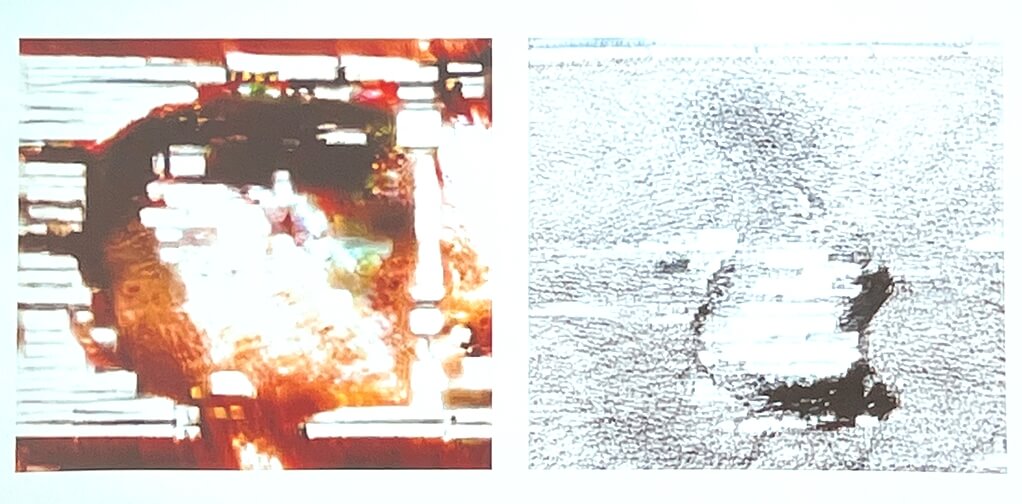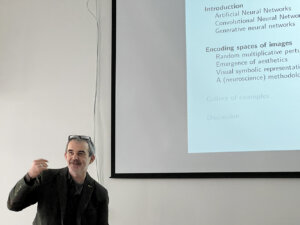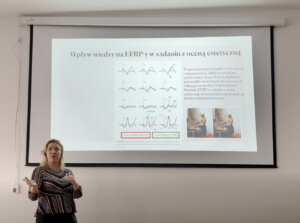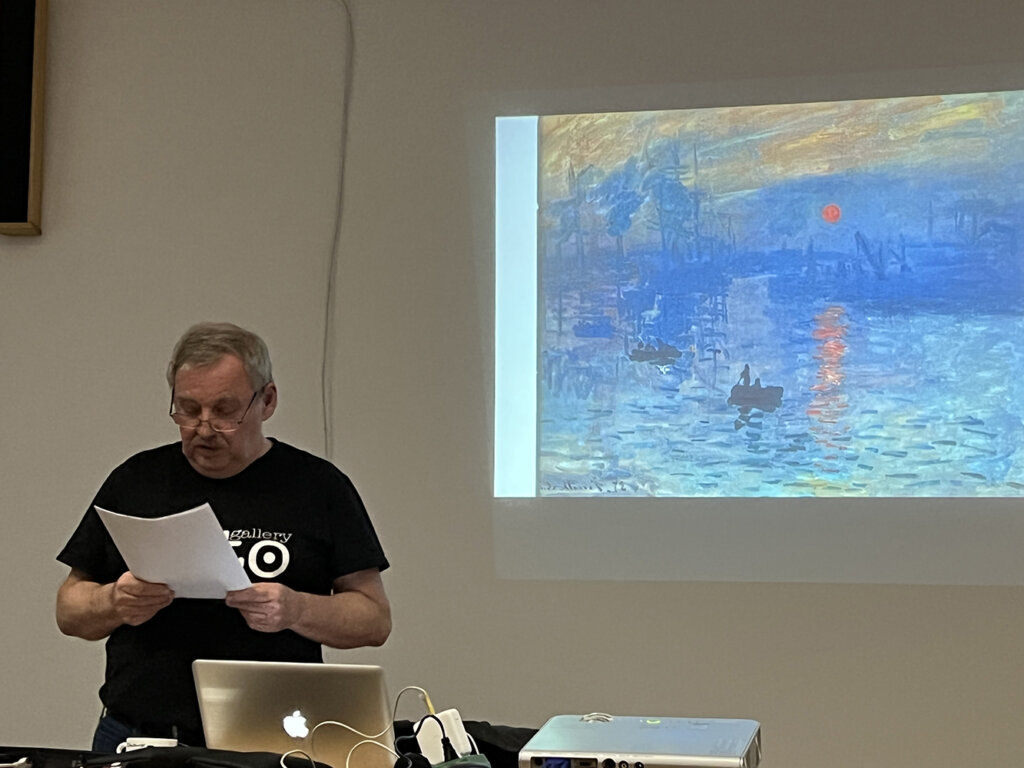Artistic impressions under the magnifying glass

07 07 2022
Category: workshops
Interesting workshops took place at the Faculty of Psychology of the Nicolaus Copernicus University in Toruń, during which visual artists, psychologists and representatives of science presented their views on art and its perception.

Romuald Janik, Department of Physics, Jagiellonian University
Understanding how art makes impressions upon the perceiver has been a fundamental topic of philosophical interest since the time of ancient Greece. However, the extent of artistic perception and aesthetic appreciation has been the topic of empirical studies only recently, following the emergence of psychology as an independent field of science. The workshop organized by the Centre for Systemic Risk Analysis together with the Institute of Psychology of Nicolaus Copernicus University in Torun on February 9th, 2022 brought together scientists and artists interested in the investigation of art appreciation and perception.
The goal of the workshop was to explore points of view presented by scientists and artists attending the workshop including: theoretical physics, neuroscience, psychology, art historians and artists. There exist scattered studies on the art perception in specific fields, but little systematic work on joining them together including artists. This interdisciplinary goal required the assembly of researchers from a diverse array of interrelated fields. The participants were selected as those reaching out from their traditional academic disciplines to study the appreciation of art. The seminar was attended by representatives of Polish universities: Warsaw University, Jagiellonian University, Nicolaus Copernicus University in Torun, John Paul II University in Lublin, Pedagogical University of Krakow, Polish Academy of Sciences.

Agnieszka Fudali-Czyż, Institute of Psychology, Pedagogical University of Krakow
The lectures and discussions were focused on the investigation of art perception, understanding of art, and challenges posed by the application of artificial intelligence in art. The Workshop was combined with an exhibition of images created by artificial neural networks, which unlike most of similar events were not inspired by masterpieces of real artists, but instead by pictures of the human environment.
Workshop program:
Aesthetics of artificial neural networks – Romuald Janik, Department of Physics, Jagiellonian University
Beauty tamed, or research into the influence of knowledge on aesthetic judgements – Agnieszka Fudali-Czyż, Institute of Psychology, Pedagogical University of Krakow
The importance of context in the reception of contemporary art – Magdalena Szubielska, Department of Experimental Psychology, John Paul II University in Lublin
Code of codes: why people don’t understand art – Dobrosław Bagiński, artist

Dobrosław Bagiński, artist